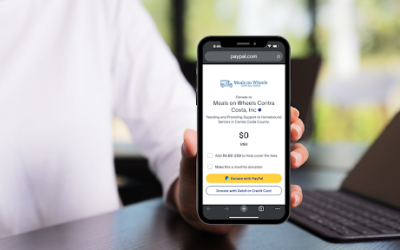Maintaining proper nutrition becomes increasingly important for overall health and well-being as we age. However, many seniors face difficulty accessing nutritious meals due to mobility issues, health conditions, or limited resources.
Free meal delivery services, like those offered by Meals on Wheels, provide a valuable solution to these challenges. These services ensure that seniors receive balanced, nutritious meals and offer numerous additional benefits that enhance their quality of life.
In this blog post, we will explore how free meal delivery services can significantly improve the lives of seniors by promoting independence, social connection, and better health outcomes.
Free Meal Delivery for Seniors
Importance of Nutrition
Good nutrition is crucial at any age, but it is especially vital for seniors. As we age, our bodies undergo various changes that affect how we process food and nutrients. Seniors often need fewer calories but more of certain nutrients, such as calcium, vitamin D, and fiber. Proper nutrition helps maintain muscle mass, supports bone health, boosts the immune system, and reduces the risk of chronic diseases like heart disease, diabetes, and osteoporosis.
Unfortunately, many seniors face obstacles that make it challenging to maintain a healthy diet, including physical limitations, financial constraints, and difficulty accessing fresh food. Free meal delivery services bridge this gap by providing balanced, nutritious meals tailored to older adults’ dietary needs.
Types of Meals Provided
Meals on Wheels of Contra Costa and similar organizations understand the unique dietary requirements of seniors. The countywide Meals on Wheels program offers various meal options that change with the seasons, designed to cater to different tastes and nutritional needs. The meals are well-balanced, including protein, vegetables, grains, and fruits.
Many programs also accommodate specific dietary restrictions, such as low-sodium, diabetic-friendly, and vegetarian options. Additionally, there are a few cultural cuisine options, such as Hispanic and Japanese dishes. Each meal is crafted to ensure seniors receive the essential nutrients they need while being delicious and enjoyable. By offering a diverse menu, meal delivery services help prevent the monotony of eating the same meals repeatedly and encourage better eating habits.
Health Benefits
The health benefits of free meal delivery services for seniors extend beyond basic nutrition. Regular access to nutritious meals helps maintain a healthy weight, improves energy levels, and enhances overall well-being. Consistent meal delivery ensures seniors do not skip meals or rely on unhealthy, processed foods due to convenience or lack of resources. Additionally, many meal delivery programs provide regular wellness checks, offering a social connection and a sense of security for seniors who may live alone. These interactions can help detect any health issues early and provide necessary support, reducing the risk of hospitalizations and improving quality of life. Overall, free meal delivery services play a crucial role in supporting the health and independence of seniors, allowing them to age with dignity and comfort.
Key benefits include:
- Consistent Nutritional Intake: Ensures seniors receive balanced, healthy meals regularly.
- Weight Management: Helps maintain a healthy weight through portion-controlled, nutritious meals.
- Energy Boost: Improves energy levels and overall vitality.
- Health Monitoring: Regular wellness checks help identify and address health issues early.
- Social Connection: Provides regular interaction, reducing feelings of isolation and loneliness.
- Reduced Hospitalizations: Early detection and proper nutrition reduce the risk of hospital visits.
Top Free Meal Delivery Programs
Medicaid and Medicare Plans
Many seniors are eligible for meal delivery services through Medicaid and Medicare plans. These government programs often include provisions for home-delivered meals as part of their benefits for those who meet specific criteria, such as having a chronic illness or a recent hospitalization. The coverage varies by state and plan, but these services ensure seniors receive nutritious meals tailored to their medical and dietary needs. By incorporating meal delivery into their care plans, Medicaid and Medicare help alleviate the burden of meal preparation, allowing seniors to focus on recovery and maintaining their health.
Area Agencies on Aging
Area Agencies on Aging (AAAs) are local organizations that provide various services to support older adults in their communities. Funded by the Older Americans Act, these agencies oversee meal delivery programs and congregate meals at senior centers that cater to seniors’ nutritional needs. AAAs work with local meal providers to deliver balanced meals directly to seniors’ homes. In addition to meal delivery, these agencies often provide nutrition education and counseling, helping seniors make informed choices about their diet. By connecting seniors with vital resources, AAAs play a crucial role in promoting independence and well-being among older adults.
Meals on Wheels
Meals on Wheels is one of the most well-known and widely available free meal delivery programs for seniors. These non-profit organizations operate in communities nationwide, providing nutritious meals to homebound seniors who cannot prepare food for themselves. Meals on Wheels offers more than just food; the delivery volunteers also provide regular wellness checks and social interaction, ensuring that seniors are safe and connected. The meals are designed to meet the dietary needs of older adults, with options for specific dietary restrictions. By delivering more than just meals, Meals on Wheels helps combat senior isolation and hunger, significantly improving the quality of life for its recipients.
Making the Most of Your Meal Delivery
Scheduling and Receiving Meals
To fully benefit from meal delivery services, it’s important to understand how to schedule and receive your meals effectively. The meals are delivered on a consistent and reliable schedule, typically once per week, with the program having transitioned to frozen meal delivery during the COVID-19 pandemic. This ensures that seniors receive their meals promptly while volunteers manage their delivery routes efficiently. It’s important to stay informed about your specific delivery schedule and make any necessary arrangements to ensure that meals are received and stored properly.
Customizing Meal Plans
One of the great advantages of meal delivery services is the ability to customize your meal plans according to your dietary preferences and health requirements. Many programs offer meal options that cater to specific dietary needs, such as low-sodium, diabetic-friendly, or vegetarian meals. Be sure to communicate any dietary restrictions or preferences to your meal delivery provider. This ensures that the meals you receive are nutritious and enjoyable.
Ensuring Freshness
To maximize the benefits of meal delivery services, it’s crucial to ensure the freshness of your meals. Immediately store perishable items in the refrigerator or freezer upon receiving your deliveries. Check the packaging for any specific storage instructions to maintain the quality and safety of the food. Most meal delivery programs use insulated containers or cold packs to keep the food fresh during transit, but it’s still important to handle the meals properly once they arrive. Consuming the meals within the recommended time frame will ensure you get the most nutritional value and taste.
Tips for Caregivers
How to Help Seniors Apply
Helping a senior apply for meal delivery services like Meals on Wheels can be straightforward, but it’s important to be thorough and attentive to their needs. Here are some steps to guide you through the application process:
- Gather Information: Collect essential details about the senior’s health, dietary restrictions, and any specific needs they may have. This will help when filling out the application forms.
- Contact the Program: Reach out to Meals on Wheels of Contra Costa or your area’s relevant meal delivery provider. Many programs allow family members or caregivers to sign up on behalf of the senior.
- Complete the Application: Complete a client intake, which may include questions about the senior’s medical history, dietary requirements, and living situation. Make sure to provide accurate and detailed information to ensure the senior receives appropriate services.
- Follow-Up: After applying, follow up with the program to confirm when meal deliveries will begin. Keeping in contact with the meal provider will help ensure there are no delays in starting the service.
Coordinating Between Programs
Many seniors may benefit from multiple services provided by different organizations. As a caregiver, coordinating these services effectively can make a significant difference in their quality of life. Here are some tips:
- Identify Available Services: Research and list all the available meal delivery programs and other support services in your area. This can include Medicaid and Medicare benefits and Area Agencies on Aging.
- Communicate with Providers: Establish clear lines of communication with each service provider. Ensure they are aware of any other services the senior receives to avoid duplication and meet all needs.
- Regular Check-Ins: Regularly check in with the senior and the service providers to ensure everything runs smoothly. Adjust the services as needed based on the senior’s evolving needs.
Ensuring Consistent Service
Consistency is key to ensuring that seniors receive the full benefits of meal delivery services. Here are some ways to ensure consistent service:
- Establish Routine Communication: Contact the meal delivery service to confirm delivery times and any changes in the schedule. This helps avoid missed deliveries.
- Emergency Contacts: Provide the meal delivery service with an emergency contact number if they cannot reach the senior during delivery.
- Backup Plans: Have a backup plan in case of missed deliveries or emergencies. This could include having a small stock of non-perishable food items on hand.
Final Thoughts
Free meal delivery services offer invaluable support to seniors, ensuring they receive nutritious meals while promoting their health and independence. Programs like Meals on Wheels, Medicaid and Medicare plans, and Area Agencies on Aging provide essential resources tailored to older adults’ dietary and social needs. By understanding how to apply, customize meal plans, and ensure consistent service, caregivers can significantly enhance the quality of life for their senior loved ones.






